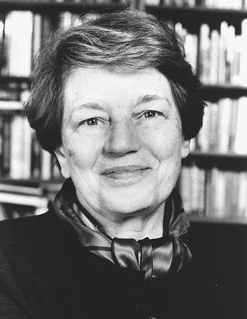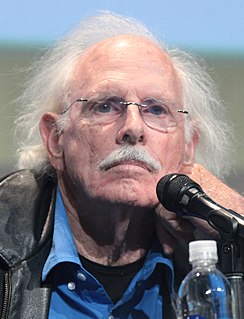A Quote by Susan Sontag
To read was precisely to enter another world, which was not the reader's own, and come back refreshed, ready to bear with equanimity the injustices and frustrations of this one. Reading was balm, amusement not incitement.
Related Quotes
I think the act of reading imbues the reader with a sensitivity toward the outside world that people who don't read can sometimes lack. I know it seems like a contradiction in terms; after all reading is such a solitary, internalizing act that it appears to represent a disengagement from day-to-day life. But reading, and particularly the reading of fiction, encourages us to view the world in new and challenging ways...It allows us to inhabit the consciousness of another which is a precursor to empathy, and empathy is, for me, one of the marks of a decent human being.
I barely read. I'm not a good reader at all. Rather than reading, I used to sit in front of the TV and watch black-and-white cowboy movies. I'm a painfully slow reader. It's really bad as an actor, because you have to read a lot of scripts. It takes me like an average of three hours to read a script, which is pretty poor.
The brain has an attentional mode called the "mind wandering mode" that was only recently identified. This is when thoughts move seamlessly from one to another, often to unrelated thoughts, without you controlling where they go. This brain state acts as a neural reset button, allowing us to come back to our work with a refreshed perspective. Different people find they enter this mode in different ways: reading, a walk in nature, looking at art, meditating, and napping. A 15-minute nap can produce the equivalent of a 10-point boost in IQ.
There is something I keep wanting to say about reading short stories. I am doing it now, because I many never have another occasion. Stories are not chapters of novels. They should not be read one after another, as if they were meant to follow along. Read one. Shut the book. Read something else. Come back later. Stories can wait.
Words are alive--when I've found a story that I love, I read it again and again, like playing a favorite song over and over. Reading isn't passive--I enter the story with the characters, breathe their air, feel their frustrations, scream at them to stop when they're about to do something stupid, cry with them, laugh with them. Reading for me, is spending time with a friend. A book is a friend. You can never have too many.
This capacity for oversignifying, for reading in, is precisely what poets tap into, both in their own practice and in the poem the give to the reader; and in doing so they turn language against its own project of conceptual division, and use it to heal itself - and in the process - paradoxically - to articulate new concepts that it can't yet accommodate.
I doubt if I shall ever have time to read the book again -- there are too many new ones coming out all the time which I want to read. Yet an old book has something for me which no new book can ever have -- for at every reading the memories and atmosphere of other readings come back and I am reading old years as well as an old book.
Two kinds of reading can be distinguished. I call them reading like a reader and reading like a writer ... when you read like a reader, you identify with the characters in the story. The story is what you learn about. When you read like a writer, you identify with the author and learn about writing.
If we are always reading aloud something that is more difficult than children can read themselves then when they come to that book later, or books like that, they will be able to read them - which is why even a fifth grade teacher, even a tenth grade teacher, should still be reading to children aloud. There is always something that is too intractable for kids to read on their own.



































